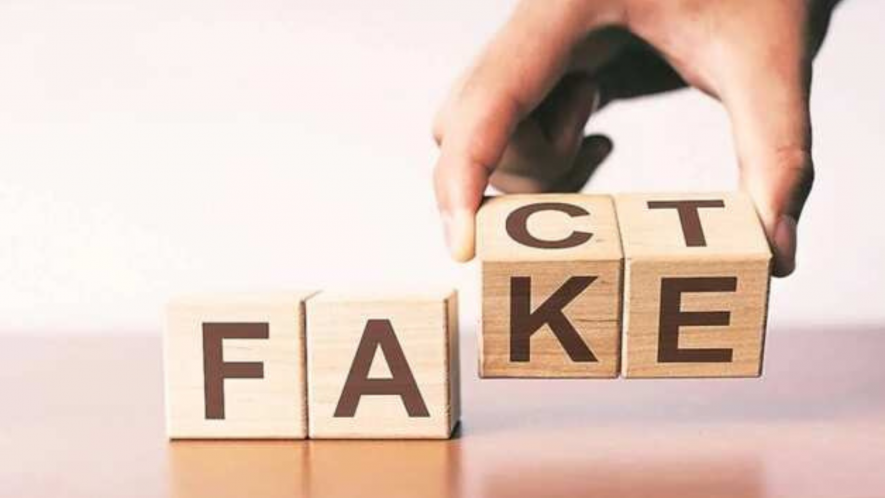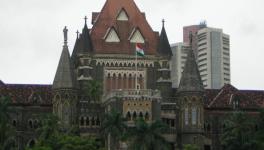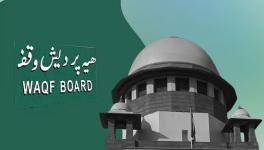IT Rules 2023: Union Government Can Now Flag Content Relating to Any of Its “Businesses” as “Misleading”

A petition was filed in the Bombay High court by Mumbai based comedian and satirist Kunal Kamra, challenging the constitutionality of a provision of the Information Technology (Intermediary Guidelines and Digital Media Ethics Code) Amendment Rules, 2023 (IT Amendment Rules, 2023). Earlier provisions in the amended rules of 2021 have been stayed by high courts. This latest provision allows for the central government’s fact checking authority to declare a piece of content related to ‘any business of the union government, ‘fake’ or ‘misleading’ upon which the intermediary -for example, a social media platform- should essentially take the content down. The Bombay HC has directed the Ministry of Electronics and Information Technology (Meity) to file its response within one week on why the IT Amendment Rules, 2023 should not be stayed, and also describe the factual background that necessitated the issuance of the amendments. The matter will now be heard on April 21.
This is an important development for two reasons. The fake news eco system across the world is on the rise and especially with the advent of deepfake technology that could be available to the general public, the believability of misinformation is at a peak, an all-time high. Therefore, if the government’s amendment monopolises the decision-making power on which information regarding itself is correct and which is not, it raises questions of transparency and accountability. Secondly, this also could hold serious implications for the right to free speech in the country since the state can intrude into what can be said about it and what cannot be, in an unprecedented manner.
In addition to add a twist to the tale so to speak, the party that constitutes the current government in power at the centre has been specifically accused of creating bands of social media accounts and other misinformation driven mechanisms and outfits that are itself held guilty or responsible for generating both disinformation and misinformation. Under these circumstances then, can that self-same government be neutral in implementing rules that are already created to arm the state in controlling thoughts and free flow of information?
Also Read
I Am A Troll: Inside the Secret World of the BJP’s Digital Army
Modi's trolls are ready to wreak havoc on India's marathon election
The first part of this article will discuss a brief background to the IT rules in question and the corresponding sections or provisions. The second part will discuss the change brought in by the amendment and analyse it vis-à-vis the fundamental rights as provided in the constitution.
IT Act and Rules
The Information Technology Act, 2000 is the primary legislation as of now to deal with electronic data and information technology. This act harbours a concept called the intermediary. Who is an intermediary? The act defines intermediary as with respect to any particular electronic records, any person who on behalf of another person receives, stores or transmits that record or provides any service with respect to that record and includes telecom service providers, network service providers, internet service providers, web-hosting service providers, search engines, online payment sites, online-auction sites, online-market places and cyber cafes. This definition encompasses all current social media giants such as Facebook, Twitter etc.[1]
One of the main functions of this definition can be found in Section 79. Section 79 states an intermediary shall not be liable for the third-party information it does not have connection to and is hosted by a user, provided some conditions are fulfilled. These conditions include the intermediary observing due diligence while discharging his duties under this Act and also observing such other guidelines as the Central Government may prescribe in this behalf.
Simply put, this provision states that in addition to the conditions which are to be fulfilled by the intermediary for it to be not liable for the information hosted on its server, provided it follows the guidelines given by the central government. If the intermediary does not follow such guidelines, the entity would lose the immunity from liability.
In 2011, the government promulgated the Information Technology (Intermediaries guidelines) Rules, 2011 which dealt with the due diligence that is to be observed by the intermediary. There were also the Information Technology (Reasonable security practices and procedures and sensitive personal data or information) Rules, 2011 which dealt with data security and security protocols to be followed by intermediaries etc.
The government, in 2021, promulgated Information Technology (Intermediary Guidelines and Digital Media Ethics Code) Rules, 2021 to supersede the IT (Intermediary Guidelines) Rules, 2011. The 2021 Rules had separate provisions for intermediaries, social media intermediaries and significant social media intermediaries. The Part III of these rules-Code of Ethics and Safeguards in relation to Digital Media- deals with the publishers of news, current affairs and online curated content.
It was in October 2022 that the rules were amended and again in 2023. Several news outlets and individuals have challenged the earlier 2021 rules. The Wire, LiveLaw, The Quint and Pratidhwani are among the petitioners who have challenged the Information Technology (Intermediary Guidelines and Digital Media Ethics Code) Rules, 2021. Initially various high courts in Maharashtra, Kerala, Delhi and Tamil Nadu had stayed the operation of the rules. In addition, 13 media outlets under the banner of Digital News Publishers Association (DNPA) and journalist Mukund Padmanabhan had moved the Madras high court against the IT Rules. Carnatic musician, author and activist T.M. Krishna had also moved Madras high court with a plea against the IT Rules. Thereafter, in May 2022, the union of India moved the Supreme Court for a transfer of all petitions there. The matter rests there. The same stay also applied to petitions challenging the Cable TV Networks (Amendment) Rules, 2021.
Now, Kunal Karmra has challenged the relevant provision and the provision which has been challenged in the Bombay High court is the Rule 3(1)(b)(v) The relevant portions before and after amendment are given in the table below for clear understanding.
|
IT Rules 2021 |
2022 Amendment |
2023 Amendment |
(a)…. (b) the rules and regulations, privacy policy or user agreement of the intermediary shall inform the user of its computer resource not to host, display, upload, modify, publish, transmit, store, update or share any information that,—
(i)…. (ii)… (iii)… (iv)… (v) violates any law for the time being in force |
(1) Due diligence by an intermediary: An intermediary, including social media intermediary and significant social media intermediary, shall observe the following due diligence while discharging its duties, namely:—
(a)… (b)the intermediary shall inform its rules and regulations, privacy policy and user agreement to the user in English or any language specified in the Eighth Schedule to the Constitution in the language of his choice and shall make reasonable efforts to cause the user of its computer resource not to host, display, upload, modify, publish, transmit, store, update or share any information that,—
(i) (ii) (iii) (iv) (v) deceives or misleads the addressee about the origin of the message or knowingly and intentionally communicates any misinformation or information which is patently false and untrue or misleading in nature; |
(1) Due diligence by an intermediary: An intermediary, including social media intermediary, significant social media intermediary and an online gaming intermediary, shall observe the following due diligence while discharging its duties, namely:—
(a)… (b) the intermediary shall inform its rules and regulations, privacy policy and user agreement to the user in English or any language specified in the Eighth Schedule to the Constitution in the language of his choice and shall make reasonable efforts by itself, and to cause the user of its computer resource not to host, display, upload, modify, publish, transmit, store, update or share any information that,—
(i) (ii) (iii) (iv) (v) deceives or misleads the addressee about the origin of the message or knowingly and intentionally communicates any misinformation or information which is patently false and untrue or misleading in nature or, in respect of any business of the Central Government, is identified as fake or false or misleading by such fact check unit of the Central Government as the Ministry may, by notification published in the Official Gazette, specify.
|
What is the impact of this amendment?
The amendment states, simply put, the intermediary should make reasonable efforts to desist from using any information that is “patently untrue, or misleading” or could “mislead or deceive” related to any business of the central government a user on its server is hosting, the credibility of being usual information if the government flags it as fake or misleading.
For example, a person, A, goes to use a toilet built under a flagship scheme of Central government in a city only to find out that the toilet does not have water for her to use. A puts up a post on twitter saying “The government seems to be so corrupt, omg, what even is this scheme where they build toilets in cities but there is no water in them. Is this a sneaky way to encourage the toilet paper industry? LOL!”
Although it is unlikely that this would be considered as misleading- let us assume for a minute that the government’s agency for fact checking considers this as misleading since according to its data, all toilets built under the scheme has consistent water supply. If the ministry flags this tweet as misleading, Twitter should cause the user to not host or transmit or share this information. What are the ways in which a platform like Twitter could do this? It could block the tweet, it could temporarily deactivate the user’s account, so on and so forth. It could flag the content as fake or misleading etc.
What effect does this have on A? She not only experienced a water shortage in a toilet but also when she lamented about it-exercising Article 19(1)(a) of the Indian Constitution-her right was curtailed. This is not to say the incident will happen but given the powers of the fact check unit of the Central Government and the usage of words “and untrue or misleading in nature or, in respect of any business of the Central Government,” it is within the powers of the authority to do that, without even hearing what A has to say.
Article 19(1)(a) of the constitution guarantees the right to freedom of speech and expression and the reasonable restrictions can be imposed on the exercise of this right by the state on the grounds of the sovereignty and integrity of India, the security of the State, friendly relations with foreign States, public order, decency or morality, or in relation to contempt of court, defamation or incitement to an offence. The amended Rule 3(1)(b)(v) gives the power to curtail the right to freedom of speech and expression without specifying any of these grounds, thus charting a broad range of grounds for itself beyond what constitution provides for.
The Supreme Court in the case of Shreya Singhal vs. Union of India, referring to the broad and vague nature of the now unconstitutional Section 66A of the IT Act, stated as follows:
In point of fact, Section 66A is cast so widely that virtually any opinion on any subject would be covered by it, as any serious opinion dissenting with the mores of the day would be caught within its net. Such is the reach of the Section and if it is to withstand the test of constitutionality, the chilling effect on free speech would be total.
The court, while holding the provision to be ultra vires the constitution, stated as follows- We, therefore, hold that the Section is unconstitutional also on the ground that it takes within its sweep protected speech and speech that is innocent in nature and is liable therefore to be used in such a way as to have a chilling effect on free speech and would, therefore, have to be struck down on the ground of overbreadth.
Apart from being violative of Article 19, by making the central government the sole judge in its own case with respect to information related to any of its business is against the principle of Natural Justice and thus violative of Article 14 of the Constitution.
Fake news and misinformation threaten the very structure of democracy in an unprecedented way. Fake news ecosystems are also being used to flare up sectoral tensions, across the world. It may be normal, even needed, for governments to bring in fair measures to rein in this fake news monster. However, for a government itself seriously accused and in the dock on this front, it is important to see the latest measures as an attack on both fundamental rights and constitutional ethos.
(The author is interning with CJP)
[1] Section2(1)(w), Information Technology Act, 2000.
Get the latest reports & analysis with people's perspective on Protests, movements & deep analytical videos, discussions of the current affairs in your Telegram app. Subscribe to NewsClick's Telegram channel & get Real-Time updates on stories, as they get published on our website.
























